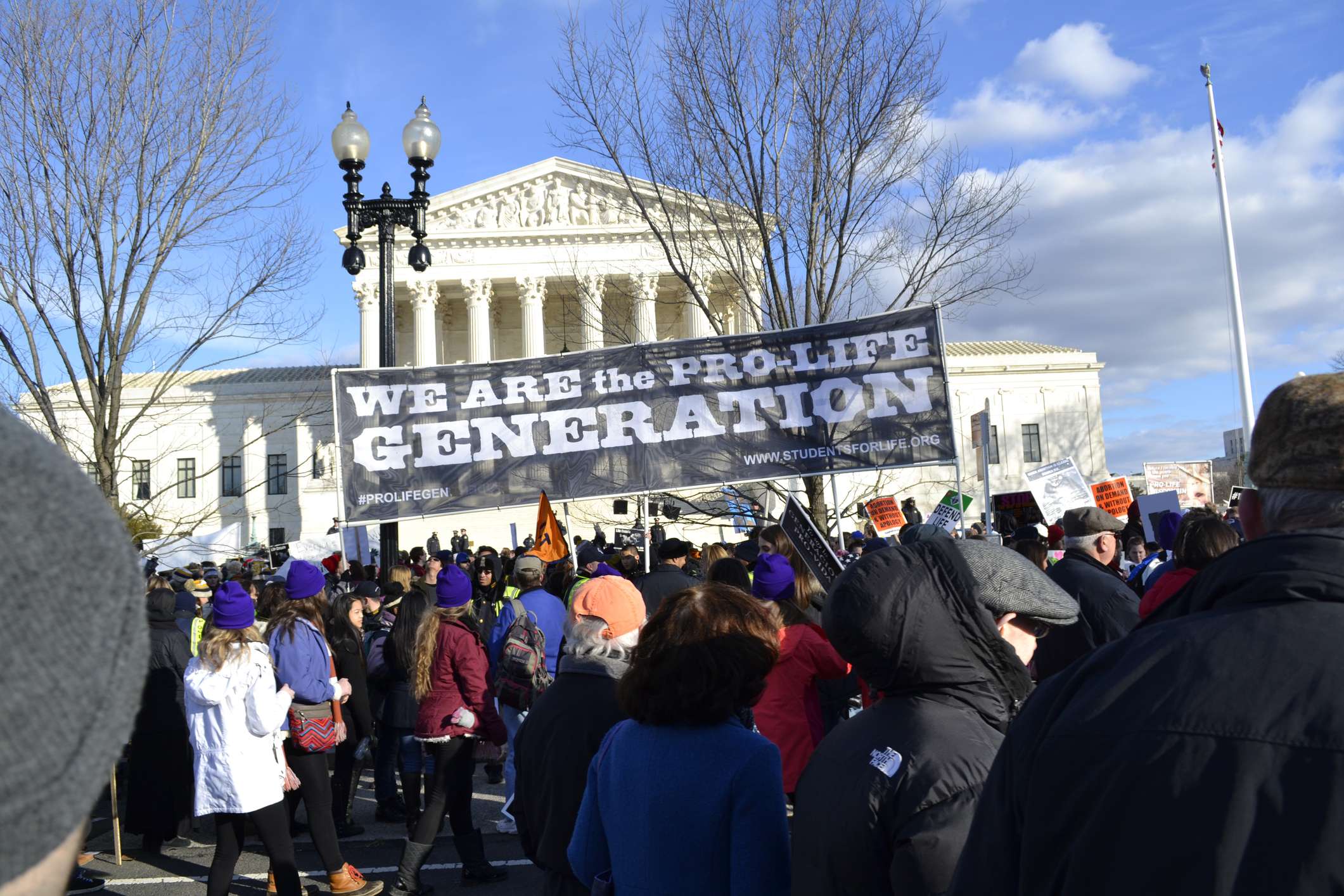
With the release of Dr. Nicole Saphier’s new book, “Love, Mom: Inspiring Stories Celebrating Motherhood,” Saphier shared her teenage pregnancy story with Fox News and on how it molded her into a better mom, wife, doctor, and long-time Fox News contributor.
Worth the Stigma: Overcoming Obstacles
“Becoming a mother at such a young age was not part of my plan,” Saphier wrote in her recent opinion piece, “From teen mom to triumph: A story of perseverance and success.” “It was a daunting challenge that could have easily derailed my dreams and aspirations of becoming a doctor. The societal stigma attached to teenage pregnancy only added to the weight of the situation.”
Women reported the obstacles and stigma was worth it for the child they gained. A few noted at Students for Life of America (SFLA) include Kelly Tolman, who after three failed abortion attempts chose life for her son and is the proud co-founder of the Pregnancy Care Center “The Pelican Project.”
Inspiring stories on SFLA staff come from California Regional Coordinator Mary-Logan Miske, whose biological father pressured her mother into an abortion, but her mother stayed strong and chose life for Miske. SFLA President Kristan Hawkins is the mother of two children with cystic fibrosis.
READ: Baby Eras: How Taylor Swift Inspired a Pro-Life Concept

“But each time I stumbled, I reminded myself of the promise I made to my child and to myself,” wrote Saphier. “To create a better future, no matter the obstacles.”
Does Choosing Life Mean Ditching Economic Success? Let’s Look at the Stats
Through the various hurdles and setbacks, that’s what Saphier did with her child – it may not have been as fast, but she still did right by her child and herself. Advocates tout abortion as a savior for women’s career, financial success, and overall happiness, but does the data support this notion?
Charlotte Lozier Institute’s 2023 study, “Does Abortion Improve Economic Outcomes for Women? A Review of the Evidence,” critically examines the belief that abortion creates a more prosperous financial future for women. Admittedly, Charlotte Lozier finds that objectively speaking, this could be the case. They reference the following 2018 study:
“They concluded that ‘[t]he majority of women in the study were living in poverty at baseline and carrying the unwanted pregnancy to term led to almost a 4-fold increase in the odds that a woman’s household income was below the FPL [federal poverty line].
Restrictions on abortion that prevent women from obtaining wanted abortions may result in reductions in full-time employment, increased incidence of poverty, more women raising children alone, and greater reliance on public assistance. The net result may have serious adverse economic consequences for women and children. Laws that impose a gestational limit for abortion or otherwise restrict access to abortion will result in worsened economic outcomes for women.’”
At first glance, it seems abortion does equal financial fruition for career and education minded women. However, Charlotte Lozier urges readers to consider other unique variables that contribute to poverty and look closely at the language of pro-abortion studies.
“While much of the research discussing abortion’s impact on women is stated to be settled science,” wrote Charlotte Lozier authors Dr. Monique C. Wubbenhorst and Dr. Brian Baugus. “Reading closely, hedge language like ‘may lead to this outcome’ or ‘infers this result’ is apparent.”
So, abortion is not a guarantee to economic success.

The data doesn’t support abortion benefiting teenagers at all levels of society. A two-year long study in 1989 found teenagers who had an abortion were “somewhat better off” economically, the data also showed more concern for their well-being, finding, “The teenagers who had an abortion also appeared to have been supervised more carefully than those who gave birth to their children.”
Charlotte Lozier’s 2021 study, “Overlooked Dangers of Mifepristone, the FDA’s Reduced REMS, and Self-Managed Abortion Policies: Unwanted Abortions, Unnecessary Abortions, Unsafe Abortions,” speaks in more detail about mental side effects:
“A comprehensive review of the literature also reveals that there is no dispute that negative emotions are common after abortion and that abortion contributes to mental illness.”
Psychological issues includes depression, PTSD, insomnia or night terrors, loss of self-confidence, relationship issues, isolation, substance abuse (alcohol or drugs), and suicide.
Additional studies backing this claim show women who have abortions are 81% more likely to experience the mentioned mental health issues.
Is it Worth the Sacrifice?
The short answer is yes.
Abortion isn’t the easy way out. While women may experience financial success, and even that’s not scientifically confirmed, their child will no longer be with them.
Having a child doesn’t guarantee a career but aborting a child guarantees their death.

It doesn’t mean it won’t be hard, but sacrifice, an underrated virtue in a postmodern world, is worth more than the cash flow. Saphier encouraged the younger generation with this:
“To every young person facing adversity, I say this – your journey may be tough, but you are tougher. Believe in yourself, stay true to your dreams, and never underestimate the power of you.”
Saphier still achieved her dreams of career and motherhood. She’s married and has three beautiful children. Who’s to say other women can’t thrive as well?
READ NEXT: Mind-Changing May: Stories From the Campaign for Abortion Free Cities
Share this post
Recent Posts

National Celebrate Life Weekend Dominates D.C.: Just Look at the Coverage
01 Jul 2025
The Pro-Life Generation REACTS: “Big, Beautiful” Budget Bill Vote One Step Closer to Defunding Planned Parenthood & ALL Abortion Vendors
01 Jul 2025
News: FIVE Lawmakers Recognized for Defending Life
30 Jun 2025

